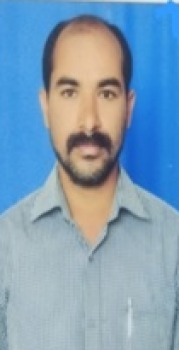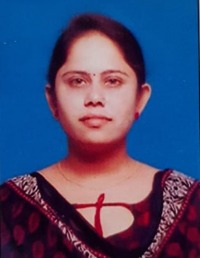
English Department
Department Mission
“To nurture the upcoming young professionals to face the dynamic situation of the corporate and business world by training the students in communication skills, soft skills, mentoring and counselling”
HOD-Message
On behalf of all our faculty members, staff and students, I feel it is a great privilege for me to share my message with you and I welcome you to our Vaageswari College of Engineering. The department is forecasting the vision of the college and striving hard for making students sure to prepare them compatible for ‘industry ready’.
Students are participating in various co-curricular activities throughout the year. Our teaching and learning process is based on the Outcome Based Education (OBE). English reigns supreme among all the other languages in the world. It plays a pivotal role in determining the future of any engineer and has become the part and parcel of the engineering curriculum. The department places a strong emphasis on imparting practical education by carefully administering proper lab work for imparting communication skills and employability skills.
Students are encouraged to communicate only in English while on campus. The students are exposed to practical real time studies there by training them to analyze and provide solution for the same. Along with curricular, students are trained in all dimensions by means of seminar, workshops, Hands on work, technical talks and many more. This provides a well built platform to enhance their enthusiasm and practical knowledge, which makes them to be confident to tackle any challenges to face employability skills and be advanced and innovative with the growing technology.
Mr M. VIDYA SAGAR
HOD & Professor
Ph.no: 7386848320
Mail: english.hod@vgse.ac.in

Mr.M.Vidyasagar
HOD & Professor
| S.NO | NAME | DESIGNATION | EXPERIENCE | QUALIFICATION | RESEARCH AREAs | PHOTO |
|---|---|---|---|---|---|---|
| 1 | Mr.M.Vidyasagar | HOD & Professor | 15 Years | M.A., B.Ed., PGDTE |  |
|
| 2 | Mr. M. MADHU KUMAR | Associate Professor | 34 Years | M.A |  |
|
| 3 | Mr K. Ramesh | Assistant Professor | 13 Years | M.A., B.Ed |  |
|
| 4 | Mr K. Devadas | Assistant Professor | 16 Years | M.A., B.Ed. |  |
|
| 5 | Mr D. Krishna Prasad | Assistant Professor | 10 Years | M.A. |  |
|
| 6 | Mrs. Anjavva | Assistant Professor | 5 Years | M.A |  |
|
| 7 | Mr. Nomula Satish | Assistant Professor | 5 Years | M.A (English) |
Labs
ENGLISH LANGUAGE COMMUNICATION SKILLS LAB
English Language Communication Skills Laboratory (ELCS) plays a significant role in enhancing the skills of engineering students. The infrastructural facilities provided, in addition to the teacher resources to enhance the skills among the students at the foundation level of engineering first year sure to prepare them compatible for ‘industry ready’. The ELCS Labs help the budding professionals to acquire relevant language skills effectively and certain measures are required to be taken by the university authorities to highlight the use and importance of the ELCS Labs for forthcoming times.
The use of effective communication is an outcome of the language labs. Proficiency is of course, the matter of constant practice, endeavour and effort. In terms of global scenario “Engineering English” has been growing its prominence everywhere and the professional students of science and technology need to acquire these skills according to the global demands of the present century.
ADVANCED COMMUNICATION SKILLS LAB
Advanced Communication Skills Lab is considered essential at 3″ year level. At this stage, the students need to prepare themselves for their careers, which may require them to listen to, read, speak and write in English both for their professional and interpersonal communication in the globalised context. Advanced Communication Skills lab to enable students to use ‘good’ English and perform the following: Gathering ideas and information to organize ideas relevantly and coherently, Engaging in debate, Participating in group discussion, Facing interviews, Writing project/research reports/technical reports.
• Making oral presentations.
• Writing formal letters.
• Transferring information from non-verbal to verbal texts and vice-versa.
• Taking part in social and professional communication.
• Further, they would be required to communicate their ideas relevantly and coherently in writing.
• To prepare all the students for their placements.